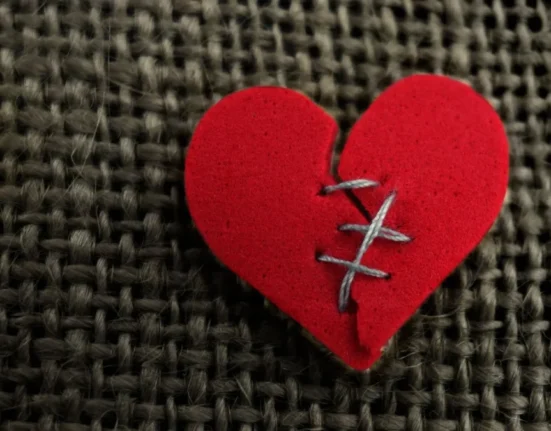Last Updated on May 29, 2025 by Rachel Hall
Are you unknowingly sabotaging your relationship? Learn how to identify and stop the most destructive behaviours before they take a permanent toll. This guide explores the 3 toxic relationship habits most couples ignore — and how to replace them with healthy, lasting change.
- Why Every Relationship Begins With Good Intentions — But Needs Maintenance
- 1. The Blame Game: Your Partner Is Not the Enemy
- 2. Emotional Absolutes: Why “You Always” and “You Never” Don’t Belong in a Healthy Relationship
- 3. Silent Resentment: The Invisible Killer of Emotional Intimacy
- How to Stop These Habits and Begin Building a Healthy Relationship
- What the Science Says: The Psychology Behind Toxic Habits
- Final Thoughts: Every Relationship Deserves a Chance to Grow — Including Yours
Why Every Relationship Begins With Good Intentions — But Needs Maintenance
When a relationship starts, it’s filled with excitement, affection and a deep sense of connection. You might think you’ve found your perfect match — a partner who understands and supports you. However, even the strongest couple can fall into behavioural patterns that weaken the emotional bond.
These patterns often begin subtly — a silent resentment here, a dismissive tone there — but over time, they compound. This is why recognising and addressing the 3 toxic patterns that quietly develop in daily interactions is essential to preserving love and building a healthy, long-term connection.
Research in psychology suggests that many of these behaviours aren’t dramatic, visible red flags. Instead, they’re woven into ordinary conversations and routines. Without early awareness and intervention, these habits grow roots, and once embedded, they’re difficult to unlearn.
1. The Blame Game: Your Partner Is Not the Enemy
Blame is a corrosive force in any relationship. When conflict arises, it can feel instinctive to point the finger at your partner. You might say things like, “You never support me” or “This is all your fault”, often in the heat of the moment. These phrases, especially when paired with generalisations such as “You always do this”, do more than express dissatisfaction — they undermine emotional safety.
Over time, this habit erodes trust. Your partner no longer feels like a teammate; they feel like the problem. This toxic pattern creates a dynamic where both parties become defensive, less willing to listen, and increasingly resentful.
Blaming may make you feel temporarily empowered or justified, but it prevents you from seeing your own role in the conflict. When blame becomes the default approach, there’s no space for mutual understanding or growth.
Stop the Blame Spiral: Take Ownership and Rebuild Trust
To stop this destructive cycle, shift from blame to ownership. Instead of highlighting what your partner is doing wrong, focus on your own experience. For example:
- “I feel overwhelmed when I don’t receive support.”
- “I need us to communicate more openly when we disagree.”
This subtle shift creates space for empathy and shared problem-solving. It also models accountability — a crucial component of a healthy relationship.
Encourage regular check-ins, where each partner can safely express their feelings and needs. This habit not only rebuilds trust but also re-establishes the foundation of respect and partnership that all long-term relationships need.
2. Emotional Absolutes: Why “You Always” and “You Never” Don’t Belong in a Healthy Relationship
Emotional absolutes like “You always ignore me” or “You never care” are common during arguments, but they are rarely true and often deeply damaging. These exaggerated claims make your partner feel unfairly labelled and trapped, as though no matter what they do, they’re inherently flawed.
In the world of psychology, this is called cognitive distortion, where emotion clouds perception. Instead of accurately describing a behaviour, these absolutes assign permanent, negative traits to your partner.
Over time, this habit discourages open dialogue and drives a wedge between even the most loving couple. Your partner may feel criticised rather than supported, leading them to shut down emotionally or retaliate.
Reframe the Conflict: Focus on Specific Behaviour, Not Identity
The solution lies in specificity and self-expression. Rather than condemning your partner with broad labels, describe what happened and how it made you feel:
- Instead of “You always ignore me”, try “I feel disconnected when we don’t talk in the evening.”
- Instead of “You never help around the house”, try “I need more shared responsibility so I don’t feel overwhelmed.”
This approach turns blame into dialogue and invites collaboration. It respects your partner’s humanity and capacity to change — rather than casting them as perpetually in the wrong.
Incorporate this language into your relationship early and consistently. It reduces defensiveness, increases empathy, and supports building a better communication foundation.
3. Silent Resentment: The Invisible Killer of Emotional Intimacy
Not all toxicity is loud. Some of the most destructive 3 toxic relationship habits operate in silence.
Unspoken resentment occurs when one or both partners suppress their frustration instead of expressing it. On the surface, everything seems fine. But underneath, there’s a growing list of grievances — unmet expectations, lack of appreciation, miscommunications — slowly poisoning the connection.
You may feel unacknowledged for your efforts, dismissed during important conversations, or emotionally distant. Yet instead of voicing these feelings, you retreat, hoping the issue will resolve on its own.
The problem? It rarely does. Instead, it builds. And what began as a silent annoyance soon became chronic bitterness.
Begin Speaking Up Early — Before the Hurt Grows
To combat silent resentment, adopt what therapists call “gentle honesty”. Express issues early, before they become emotional landmines. Try:
- “I feel unappreciated when my contributions go unnoticed.”
- “I need more emotional check-ins from you.”
Make time for weekly or fortnightly couple reviews, where each partner shares openly without judgment. It’s not about confrontation — it’s about connection.
When you begin communicating with transparency and empathy, you shift from silence to solution, and transform a passive habit into an empowering routine.
How to Stop These Habits and Begin Building a Healthy Relationship
Now that you’ve identified the 3 toxic behaviours, what’s next?
Awareness is only the first step. The real work is in the consistent effort to stop these patterns and replace them with intentional, healthy alternatives.
Here’s a four-part action plan to guide you:
- Begin with self-reflection: Journaling can help you track your triggers, reactions and progress.
- Establish a weekly “relationship check-in” to discuss emotions, needs and appreciation.
- Use scripts and sentence starters to express yourself with clarity.
- If stuck, consider working with a psychology-based therapist who specialises in couples therapy.
Relationships don’t thrive on autopilot. They need regular maintenance, emotional safety, and a mutual commitment to building trust and intimacy.
What the Science Says: The Psychology Behind Toxic Habits
Leading relationship psychologists, including Dr. John Gottman, suggest that the difference between a thriving relationship and a failing one isn’t the number of conflicts — it’s the way couples handle them.
Gottman’s research identifies four major relationship killers, known as the “Four Horsemen”: criticism, contempt, defensiveness, and stonewalling. Interestingly, the 3 toxic relationship habits discussed here — blame, emotional absolutes, and unspoken resentment — often contain all four.
What separates successful couples is their approach. They repair early, take emotional responsibility, and actively cultivate appreciation. This aligns with current psychology research on emotional resilience, secure attachment, and cognitive reframing.
If you want to make your relationship last, start by mastering these basics. They aren’t flashy, but they are profoundly effective.
Final Thoughts: Every Relationship Deserves a Chance to Grow — Including Yours
If you’ve recognised yourself or your partner in these patterns, that’s not a sign of failure — it’s a sign of awareness.
The truth is, every couple will encounter conflict. Every long-term relationship will endure challenges. But the difference lies in what you do next. Will you fall into defensive habits, or will you begin making small shifts toward empathy, accountability and growth?
Choose the latter. Because love isn’t just about the butterflies at the start — it’s about the work you put in every day after.
You don’t need to be perfect. You just need to show up, own your part, and take action.
Because your love, your partner, and your future together are worth it. Habits To Avoid

Rachel Hall, M.A., completed her education in English at the University of Pennsylvania and received her master’s degree in family therapy from Northern Washington University. She has been actively involved in the treatment of anxiety disorders, depression, OCD, and coping with life changes and traumatic events for both families and individual clients for over a decade. Her areas of expertise include narrative therapy, cognitive behavioral therapy, and therapy for traumatic cases. In addition, Rachel conducts workshops focusing on the psychology of positive thinking and coping skills for both parents and teens. She has also authored numerous articles on the topics of mental health, stress, family dynamics and parenting.








Leave feedback about this